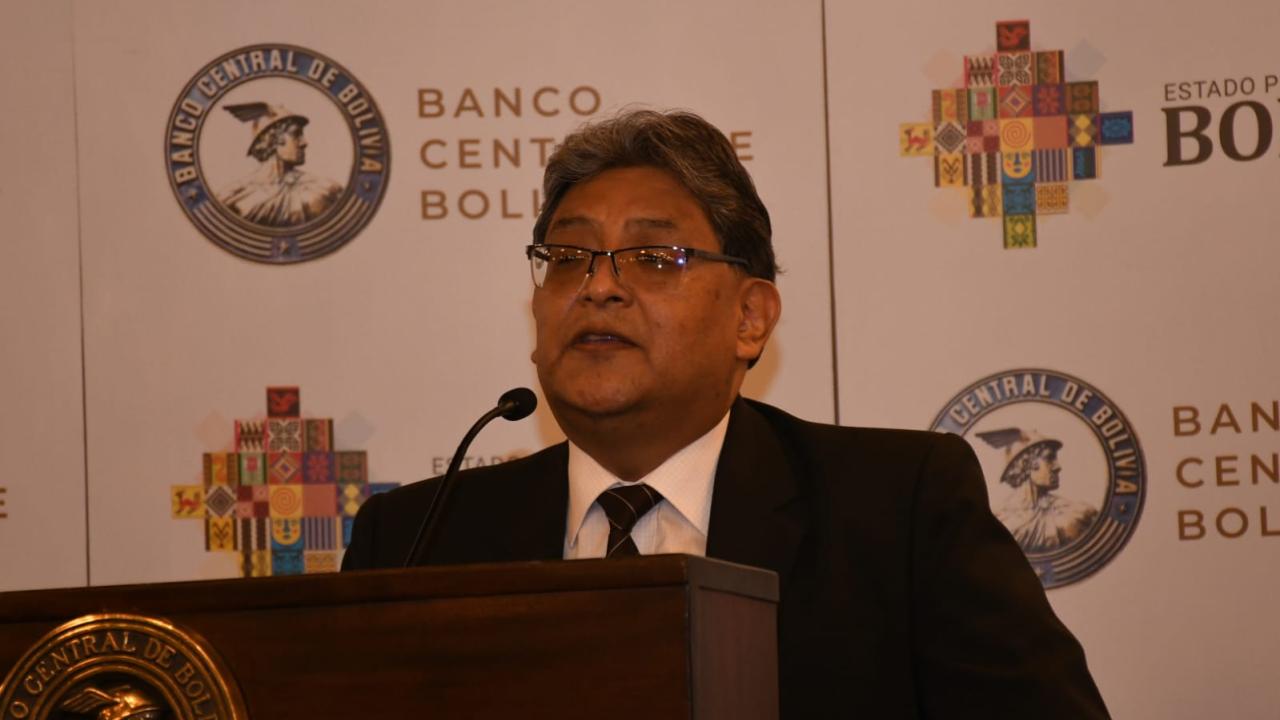
In the report presented to the Legislative Assembly, the Central Bank of Bolivia reported that until April of this year it purchased a total of 8.65 tons, of which 4.56 were acquired between January and April 2024.
As of April of this year, Bolivia's Net International Reserves (RIN) grew by 5% and reached US$ 1,796 million, US$ 87 million more compared to the 31st at the end of 2023, according to the Central Bank of Bolivia (BCB). ).
The president of the issuing entity, Edwin Rojas, considered that this increase allows the RIN to remain stable despite an adverse internal and external context for the flow of foreign currency to the Bolivian economy.
“It is important news in terms that, in the first four months, the level of the country's NIR has remained stable and if we compare it with what was at the end of the last administration, there is even an increase,” he said at a press conference.
He explained that, domestically, the climatic phenomenon “El Niño” affected agricultural production, leading to lower exports, aggravated by the blockage of roads at the beginning of the administration. Added to this is the lower hydrocarbon production capacity, which resulted in lower export volumes. Also, the delay in the approval of external credits in the Legislative Assembly prevented the flow of resources to the economy.
Externally, he maintained that the conflict in the Middle East has caused global tensions over the stability of prices of raw materials such as oil, which has remained at high levels, crossing the barrier of US$85 per barrel.
GOLD
The stability in the reserves is also explained by the policies applied by the BCB such as the Gold Purchase Law aimed at Strengthening International Reserves, which generated the necessary mechanism for the acquisition, refining and contribution to gold reserves, established in Law 1503 of May 2023.
Rojas reported that, from May 2023 to April of this year, the BCB purchased a total of 8.65 tons, of which 4.56 were acquired in the first quarter of 2024.
“As of April of this current administration, the Central Bank has acquired 8.65 tons of fine gold in the domestic market (…). The purchase of gold has been in line with what the Central Bank has established, has programmed, of being able to buy during the administration at least 10 tons of gold that can strengthen the International Reserves,” explained Rojas.
Additionally, the gold refining process – which consists of certifying the precious metal as quality bars of good delivery in accordance with the standards of the London Bar Market Association (LBMA) – has made it possible to conclude with the purchase cycle of this precious metal, since, to date, 2.67 tons have been refined and credited to the BCB accounts abroad.
He indicated that to date, about 3.73 additional tons are in the process of refining abroad, which will soon be credited into the gold accounts of the Issuing Entity.
Regarding gold reserves, in compliance with Law 1503 and its Regulations, the BCB presented this May 2 to the Legislative Assembly the “Report on operations with gold reserves”, in which it explains that, almost One year after the norm was promulgated, the Issuing Entity completed the implementation of the process of strengthening the RIN, for the benefit of the Bolivian economy.









